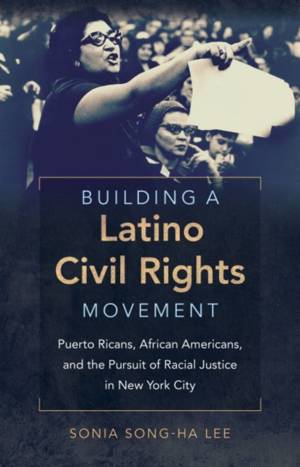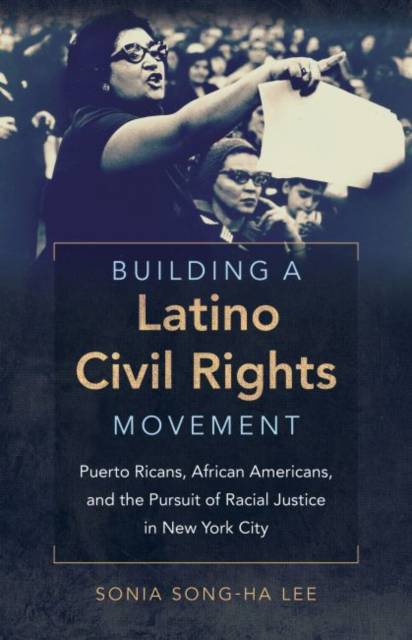
- Afhalen na 1 uur in een winkel met voorraad
- Gratis thuislevering in België vanaf € 30
- Ruim aanbod met 7 miljoen producten
- Afhalen na 1 uur in een winkel met voorraad
- Gratis thuislevering in België vanaf € 30
- Ruim aanbod met 7 miljoen producten
Zoeken
Building a Latino Civil Rights Movement
Puerto Ricans, African Americans, and the Pursuit of Racial Justice in New York City
Sonia Song-Ha Lee
€ 60,95
+ 121 punten
Omschrijving
In the first book-length history of Puerto Rican civil rights in New York City, Sonia Lee traces the rise and fall of an uneasy coalition between Puerto Rican and African American activists from the 1950s through the 1970s. Previous work has tended to see blacks and Latinos as either naturally unified as "people of color" or irreconcilably at odds as two competing minorities. Lee demonstrates instead that Puerto Ricans and African Americans in New York City shaped the complex and shifting meanings of "Puerto Rican-ness" and "blackness" through political activism. African American and Puerto Rican New Yorkers came to see themselves as minorities joined in the civil rights struggle, the War on Poverty, and the Black Power movement -- until white backlash and internal class divisions helped break the coalition, remaking "Hispanicity" as an ethnic identity that was mutually exclusive from "blackness."
Drawing on extensive archival research and oral history interviews, Lee vividly portrays this crucial chapter in postwar New York, revealing the permeability of boundaries between African American and Puerto Rican communities.
Drawing on extensive archival research and oral history interviews, Lee vividly portrays this crucial chapter in postwar New York, revealing the permeability of boundaries between African American and Puerto Rican communities.
Specificaties
Betrokkenen
- Auteur(s):
- Uitgeverij:
Inhoud
- Aantal bladzijden:
- 352
- Taal:
- Engels
- Reeks:
Eigenschappen
- Productcode (EAN):
- 9781469629803
- Verschijningsdatum:
- 1/08/2016
- Uitvoering:
- Paperback
- Formaat:
- Trade paperback (VS)
- Afmetingen:
- 157 mm x 235 mm
- Gewicht:
- 539 g

Alleen bij Standaard Boekhandel
+ 121 punten op je klantenkaart van Standaard Boekhandel
Beoordelingen
We publiceren alleen reviews die voldoen aan de voorwaarden voor reviews. Bekijk onze voorwaarden voor reviews.








